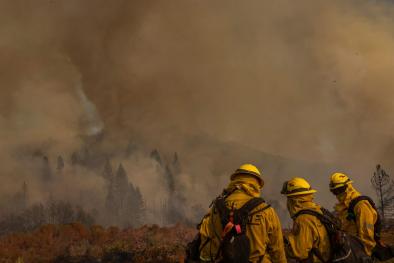Science Source
Probabilistic estimates of recent changes in temperature: a multi-scale attribution analysis
- Investigates the role of anthropogenic forcings in temperature changes during recent decades over a range of spatial scales
- Considers changes in the annual mean surface temperature and also in the warmest night of the year, which has implications for human health
- Produces distributions of regional trends with and without the effect of human activity using constraints from a global optimal detection analysis
- Estimates anthropogenic forcings to have more than doubled the likelihood of mean warming in all regions considered except central North America, where results are more model dependent
- Finds the likelihood of warming of the warmest night has also increased, but the estimated change is more uncertain
- Inferences on sub-continental scales are indicative rather than definitive because of the absence of locally important forcings and processes in model simulations, as well as model biases
- Concludes that a multi-model approach is essential as model inconsistencies may impact regional analyses
Related Content
Headline

Feb 7, 2024 | Climate Nexus Hot News
Heat And Smoke Are Worse Together Than Apart
Science Source
| Science Advances
Unprecedented climate events: Historical changes, aspirational targets, and national commitments
Noah S. Diffenbaugh, Deepti Singh, and Justin S. Mankin
Science Source
| American Meteorological Society
Sixfold Increase in Historical Northern Hemisphere Concurrent Large Heatwaves Driven by Warming and Changing Atmospheric Circulations
Cassandra D. W. Rogers , Kai Kornhuber , Sarah E. Perkins-Kirkpatrick et al
Science Source
| American Meteorological Society
Diverse Characteristics of U.S. Summer Heat Waves
Bradfield Lyon and Anthony G. Barnston


